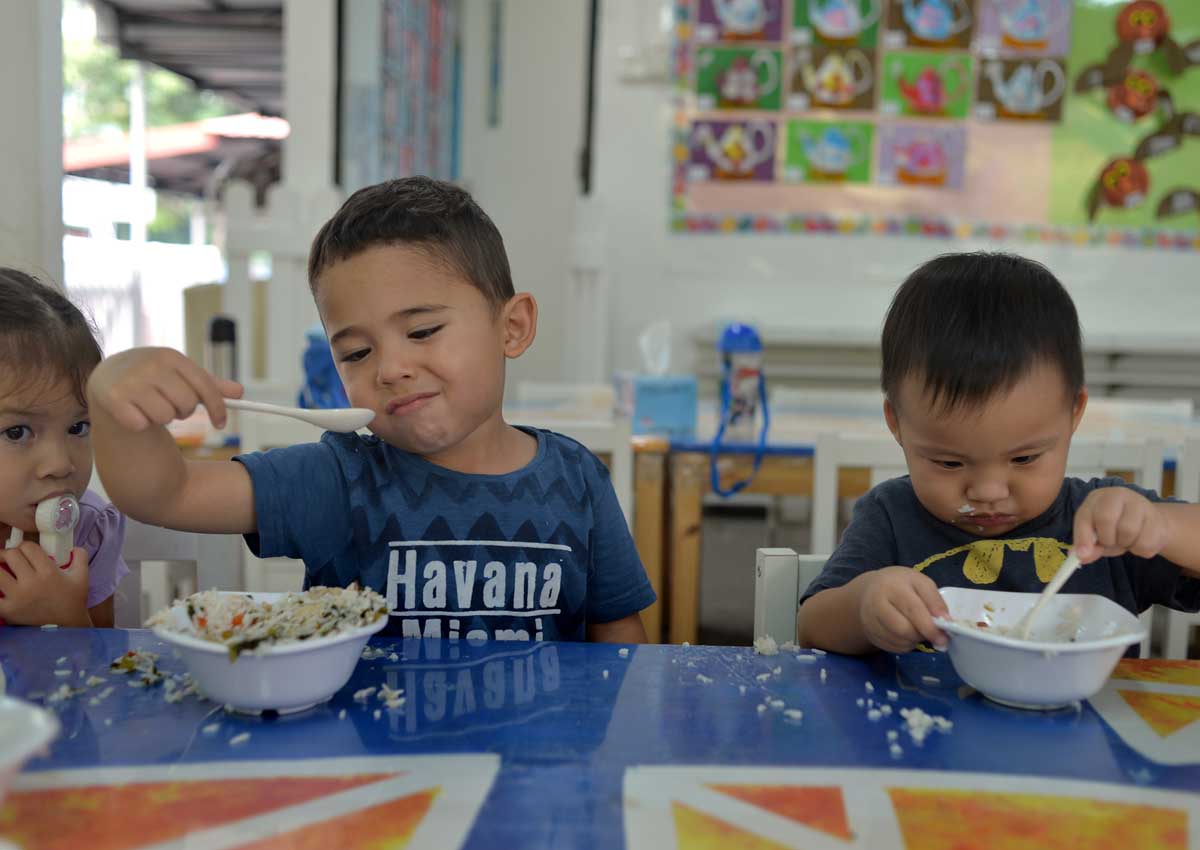Preparing food – such as pasta, mashed potato and rice with chicken and spinach – for children has become much easier at more than 30 pre-schools here.
They have signed up for a centralised catering system started last month and believed to be the first of its kind in the pre-school sector here catering to different schools.
It is one of at least two initiatives launched recently to lower costs and raise productivity in a rapidly expanding pre-school sector. The other initiative helps pre-schools identify IT solutions that help educators in their administrative work.
Both initiatives are led by the Association of Early Childhood and Training Services (Assets), which represents pre-school operators and teacher training institutes here.
In the catering service, meals are prepared daily by Singapore Food Industries for about 2,000 children in pre-schools run by different operators across Singapore.
The menu is approved by the Early Childhood Development Agency (ECDA) and Ministry of Health, and meets nutrition standards set by the Health Promotion Board.
After a pre-school industry forum in May, several operators said they were keen on a centralised catering system, so Assets worked with the Employment and Employability Institute to get a vendor.
Assets chairman T. Chandroo, who also chairs pre-school chain Modern Montessori International, told The Straits Times: “With the centralised meal-catering system, pre-schools can save on manpower and resources, as they do not need to have dedicated space and staff to prepare meals for the children.”
The early childhood sector has been growing due to rising demand for pre-school services. There were 1,700 pre-schools last year, up from 1,200 in 2008.
Five centres under Safari House Preschool signed up for the catering service last month. Its director Vincent Teoh said: “Currently, it is very difficult to recruit cooks and kitchen helpers, and we also have to closely monitor and manage the food hygiene and consistency of the food quality.
“With the catering system, we can be assured that the children will have quality healthy food daily, without any interruptions. The management can then have more time to focus on children’s development.”
For children with food allergies, the caterer has special menus, said Dr Chandroo. “The caterer fully complies with Singapore’s strict hygiene and safety standards in preparing the meals, hence ensuring food safety for the children.”
Meanwhile, an initiative to support teachers in administrative work was also launched earlier this month. Under the Smart Solutions initiative, Assets has been working with ECDA and the Info-communications Media Development Authority to identify ways to help pre-schools move away from labour-intensive administrative processes.
These include apps that make it easier and paperless for educators to mark attendance, record children’s temperatures, manage information on staff and pupils, and communicate with parents.
Six vendors were shortlisted after a call for proposals in August. Pre-schools that sign up for such solutions under this initiative can receive funding of up to 70 per cent.
One vendor is education technology firm LittleLives. Its apps have been used by Cherie Hearts @ Upper Thomson since 2014 to help with tasks such as taking attendance and tracking children’s progress.
Other cost-saving initiatives by Assets are in the pipeline, including bulk purchasing for pre-school supplies and zonal bus services.
Mr Izaan Tari Sheikh, 32, an executive director at a bank, has a three-year-old daughter in a pre-school that is not on the centralised catering scheme.
He said: “As long as the food is halal and safe, I’m okay with whether the pre-school uses the central catering scheme or not. But having a central established caterer could lead to better monitoring of food safety.”

This article was first published on Oct 10, 2016.
Get a copy of The Straits Times or go to straitstimes.com for more stories.






